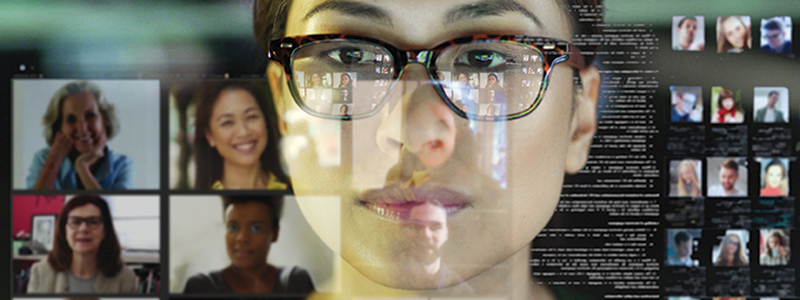
By Joshua D. Franklin
Getting over graduation cancellations due to the pandemic and then studying for the bar exam were already a feat, but the class of 2020 and other new lawyers deserve an honorable mention for taking their lawyer’s oath behind a computer and then practicing entirely in a remote setting for almost a year. Every new attorney has heard the stories of late nights in the war room with your class of associates, tirelessly preparing for trial or working all night exchanging versions of a brief—but to endure the same without the expected level of human interaction created both a unique set of challenges and new opportunities for creativity.
We all know law school does not fully prepare one for the practice of law, but law school certainly did not teach any of us how to schedule Zoom meetings and manage breakout rooms for a closing or mediation. After one year of practice, it is clear that a vast majority of our training is hands-on; yet in a remote environment, the daily interaction with more senior attorneys is much different. For new attorneys specifically, we have no way of gauging whether any of our duties are easier or harder, better or worse due to the pandemic—only time will tell.
For some, the work-from-home life may have seemed like a dream, but for others, like me, it was their worst nightmare. Managing a daily laundry list of duties, from working on memorandums and reviewing documents to attending hearings and scheduling calls, all alone from home was extremely unprecedented. Although it was easier to attend back-to-back hearings in different counties on Zoom, as opposed to appearing in person, it was not as easy to do normal things like ask a question or build relationships. Instead of seeing colleagues in the office, we were left with no choice but to either make a cold-call or schedule a meeting, sometimes for things as small as font or heading styles. I still find myself constantly measuring the urgency and importance of every question and trying to find the best technique to ask.
For the past year, even while working on day-to-day tasks, we were extremely limited in whom we could reach out to for help. Most new attorneys may only have a relationship with a handful of other people, if any at all. For some who may have prior experience with the same employer as a clerk or otherwise, navigating their role as a new attorney, even from home, may not have been as easy as expected. When working on a complex issue, not being able to walk down the hall to ask for advice on an issue was difficult. While it is so much easier to casually share a random thought about an issue in passing, new attorneys were left with no choice but to either cold-call a colleague or send an email asking for availability over the week. Even some extroverts were skeptical about using their cell phone to call another attorney’s personal number to ask a “quick question.” I still remember my first months, hesitating as I dialed, constantly asking myself:
“Is this a good question?”
“Am I being annoying?”
“Am I asking too many questions?”
“We just spoke forty-five minutes ago, should I even call again?”
Of course, all attorneys remember the first time they stated their appearance for the record, and how nervous they were. When hearings became virtual, even veteran attorneys were nervous about the new technology. Most new attorneys dreamed of the first time they would announce their appearance, head high, in the courtroom—but instead they were focused on finding the perfect corner of the house with a neutral background and making sure the kids were out of sight and the dog’s barking was out of ear’s reach.
Even a year later, most new attorneys still have not had the opportunity to determine whether appearing by Zoom or in person is more comforting.
"Additionally, for the first time, the attorney across the country was as accessible as the attorney who sits next to you. We ultimately had an opportunity for an entire year to meet almost anybody..."
Still, despite the nerves and jitters of the first year of practice, practicing in a remote environment proved how much friendly relationships make the practice of law more relaxed and enjoyable. I do not think many can disagree, working in a remote environment in some ways made practicing more personal. During any Zoom call, rather than shaking hands, we were invited into the other person’s personal workspace. We were able to look at the person’s background, or virtual background, which could act as an icebreaker when starting a conversation. We were able to see and hear pets, meet family and children—even sometimes unexpectedly—but this allowed new lawyers and others to connect more personally and get to know one another beyond work. All new lawyers have experienced hard days, but the interpersonal connection of seeing your superior’s cat run across the keyboard during a meeting just eases the pressure and reminds everyone that we’re all human.
Almost at the one-year mark since beginning our practice, the pandemic has created opportunities to build a personal strategy that allows us to find new opportunities to excel in our practice. Whether we want to meet someone new in the organization or work on a specific case or matter, technology has given us a unique opportunity to be more interconnected than ever before. For example, first-year attorneys all have had at least one opportunity to attend an event that they may not have had the chance to attend in person. Additionally, for the first time, the attorney across the country was as accessible as the attorney who sits next to you. We ultimately had an opportunity for an entire year to meet almost anybody accessible by phone or internet and could start a conversation by simply asking about their thoughts on working from home.
With more changes on the way, new lawyers must continue to seek new opportunities and be flexible. We cannot shy away from virtual trainings or happy hours, and we cannot wait until we are back in the office to build relationships. Many of us still have not been on our first business trip or had the opportunity to meet face-to-face with the people we have been working with for the past year.
For many of us, practicing law still feels brand-new. Any morning we may get thrown into a wildfire of email chains, attachments, or calendar invites on an issue we’re entirely unfamiliar with, so it is important that we build our network and our toolkit with as many resources as possible. Because we do not have the luxury of another staff member or attorney secretly stopping by our office to show us how to organize our inbox, we have to be intentional. We may have to take time out of our schedules to look through the office directory and speak to somebody in our department that we have not yet had the chance to meet. If we’re looking to get involved on a specific team or project, we may have to schedule recurring meetings, even if only fifteen minutes, and get to know someone new. Intentionally making one new connection could leave an everlasting impression.
Whether an extrovert or introvert, an auditory, visual, or kinesthetic learner, the challenges of navigating the practice as a new lawyer in a remote environment should be embraced. When trying new things, consider your personality and learning style. Auditory learners may choose to dial into a virtual meeting rather than watch the presenters on screen; an introverted lawyer may choose one new person to talk to for fifteen minutes a week. We all have to master our time and our practice, and we should continue to try new things, while also finding what works best for our learning styles.
Despite the challenges of the first year of practice in a remote environment, new lawyers must remain as connected as possible, even if it means stepping out of our comfort zone. As we continue to navigate the “new normal,” we must also remember that we’re not in this alone. None of us have experienced what it is like to practice in a pandemic and there is no clear path of navigation. So now, more than ever, it is important that we continue to give ourselves and others grace, let our kindness lead the way, and be intentional in our actions.
 Joshua D. Franklin
Joshua D. Franklin
joshua.franklin@mitchellhamline.edu
Joshua Franklin is dedicated to honorable achievement in every field of human endeavor. A native of Brooklyn, NY and HBCU graduate, Mr. Franklin currently resides in Minnesota and was employed as an attorney at Barnes & Thornburg, as a member of the Litigation Department serving as counsel in the Aviation; FinTech; Private Client Services; White Collar & Investigations practice groups.